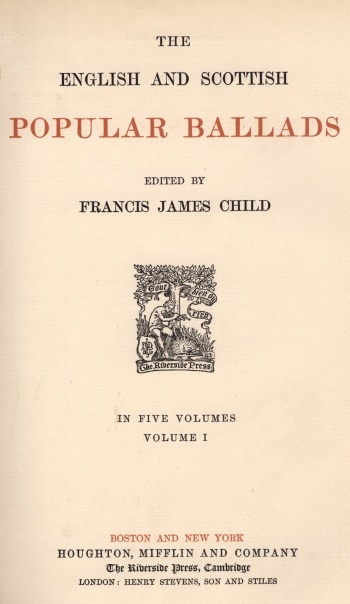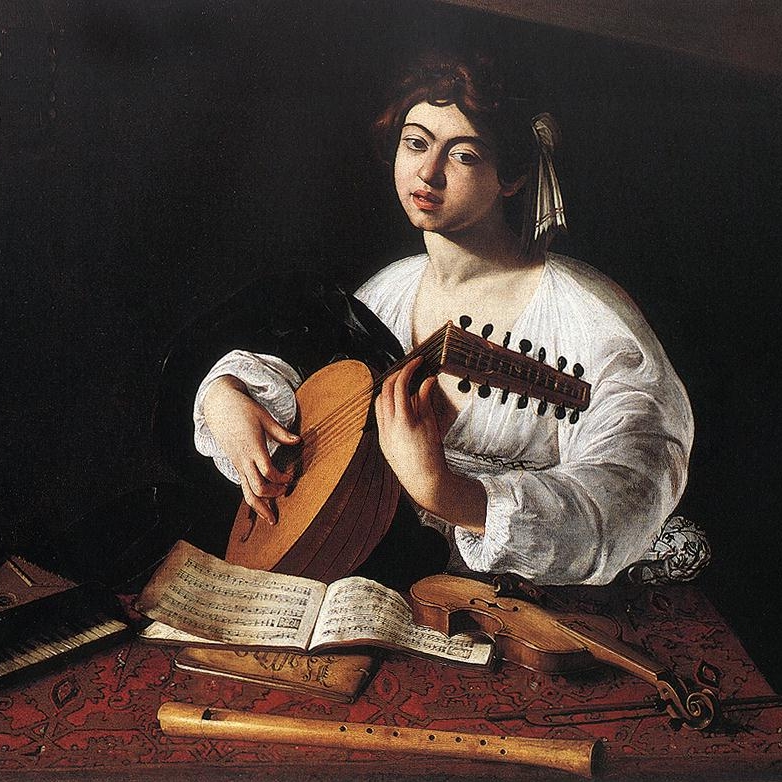In order to preserve the historical integrity of the ballads in this section they are presented in their original dialects, which span a broad range. These ballads have been passed down through the centuries from many different regions of Great Britain before appearing in print. A synopsis of each ballad, in modern American English, is provided to aid in ease of comprehension of the dialects.
Late at een, drinking the wine,
Or early in a mornin,
The set a combat them between,
To fight it in the dawnin.
"O stay at hame, my noble lord!
O stay at hame, my marrow!
My cruel brother will you betray,
On the dowy houms o Yarrow."
"O fare ye weel, my lady gaye!
O fare ye weel, my Sarah!
For I maun gae, tho I neer return
Frae the dowy banks o Yarrow."
She kissd his cheek, she kaimed his hair,
As she had done before, O;
She belted on his noble brand,
An he's awa to Yarrow.
O he's gane up yon high, high hill -
I wat he gaed wi sorrow -
An in a den spied nine armd men,
I the dowy houms o Yarrow.
"O if ye come to drink the wine,
As ye hae doon before, O?
Or if ye come to wield the brand,
On the bonny banks o Yarrow?"
I im no come to drink the wine,
As I hae doon before, O,
But I im come to wield the brand,
On the dowy houms o Yarrow."
Four he hurt, an five he slew,
On the dowy houms o Yarrow,
Till that stubborn knight came him behind,
An ran his body thorrow.
"Gae hame, gae hame, good-brother John,
An tell your sister Sarah
To come an lift her noble lord,
Who's sleepin sound on Yarrow."
"Yestreen I dreamd a dolefu dream;
I kend there wad be sorrow;
I dremd I pu'd the heather green,
On the dowy banks o Yarrow."
She gaed up yon high, high hill -
I wat she gaed wi sorrow -
An in a den spy'd nine dead men,
On the dowy houms o Yarrow.
She kissd his cheek, she kaimd his hair,
As oft she did before, O;
She drank the red blood frae him ran,
On the dowy houms o Yarrow.
"O haud your tongue, my douchter dear,
For what needs a' this sorrow?
I'll wed you on a better lord
Than him you lost on Yarrow."
"O haud your tongue, my father dear,
An dinna grieve your Sarah;
A better lord was never born
Than him I lost on Yarrow.
"Tak hame your ousen, take hame your kye,
For they hae bred our sorrow;
I wiss that they had a' gane mad
Whan they cam first to Yarrow."
The ballad Braes O' Yarrow appears in Volume IV of The English and Scottish Popular Ballads, edited by Francis James Child. These volumes are in the public domain.

The Child Ballads are 305 traditional ballads from England and Scotland, and their American variants, anthologized by Francis James Child during the second half of the 19th century. ... Read more at Wikipedia.

Ballads were particularly characteristic of the popular poetry and song of the British Isles from the later medieval period until the 19th century. ... Read more at Wikipedia.